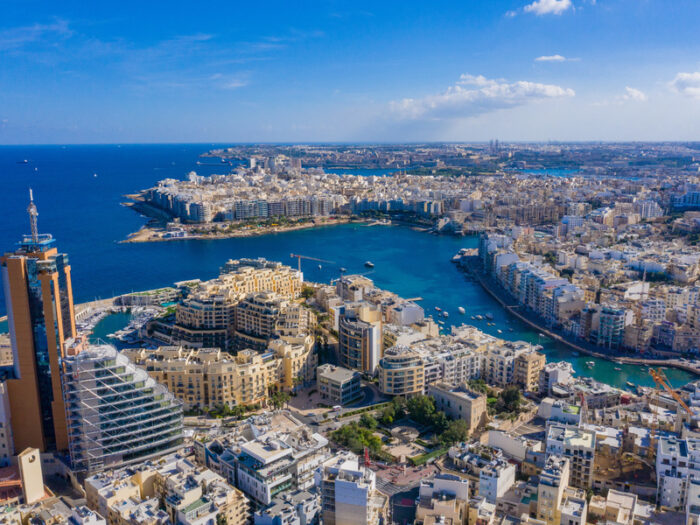
When buying or selling real estate in Malta, accurate property valuation is non-negotiable. The listed price might not reflect the true market value, and that difference can cost you a lot—whether you’re a first-time buyer, investor, or someone trying to sell their home. Malta’s property market moves fast, and if you rely only on what the agent tells you or what similar homes “look like,” you risk overpaying or underselling.
True value depends on far more than just size or location. It requires a deeper look into market trends, property condition, legal factors, and long-term potential. If you want to avoid mistakes and make the most of your investment, you need to know exactly what makes a property valuable—and what doesn’t.
Key Highlights
- Property prices in Malta vary widely based on location and condition.
- Local demand and zoning rules influence market value.
- Historical data and recent sales can reveal fair price ranges.
- Hidden costs like permits and restoration need to be considered.
- Professional valuation is not always necessary but often worth it.
- Online listings can serve as helpful reference points, not final benchmarks.
Location Decides More Than You Think

In Malta, location influences price more than any other factor. Property in Sliema, St. Julian’s, and Valletta tends to carry premium price tags. Demand for proximity to the sea, cultural landmarks, and commercial zones keeps prices elevated. Even within the same town, prices can shift dramatically depending on whether the property faces a main road, sits on a quiet alley, or has sea views.
When comparing two properties of similar size and style, always factor in the neighborhood. Schools, transportation, local shops, and future infrastructure plans all impact how valuable a location really is. Don’t just check Google Maps—spend time in the area. Walk around. Talk to locals. You’ll often learn what the listing didn’t tell you.
Use Online Listings, But Don’t Rely on Them Alone
You’ll find plenty of online platforms with advertised prices, but listings don’t tell the full story. Many properties for sale in Malta are listed higher than what they eventually sell for. Sellers often aim high to leave room for negotiation.
A smart move is to browse through a large, updated listing platform. Property Market provides a good sense of current asking prices and trends across different regions. Use filters to compare properties of similar type, age, and location. Then track listings that stay posted for weeks—that usually signals overpricing or hidden issues.
Online listings offer visibility. Real value comes from comparison, not the number in bold.
Compare Past Sale Prices and Real Market Data
Property value assessment starts with facts. The best indicator of a property’s value is what similar homes have sold for recently—not what they’re listed for now. Past transaction data tells you what buyers were willing to pay, and that’s more honest than any advertisement.
Look at:
- Final sale prices over the last 6–12 months
- Price per square meter in the same town or neighborhood
- Sales of comparable properties (same condition, size, and age)
For Malta, the National Statistics Office publishes periodic reports. Real estate agents also have access to internal databases, which you can ask to review. If you’re dealing with high-value or commercial real estate, hire an independent appraiser. They’ll use adjusted comparisons to give you a valuation grounded in actual figures.
Consider the Building’s Age, Structure, and Condition
A property that looks great on the surface may hide serious issues. In Malta, older homes—especially townhouses and farmhouses—can have outdated wiring, hidden damp, or structural wear. Renovation costs pile up fast, and unless you account for that before purchase, you risk exceeding your budget by tens of thousands.
Ask for:
- Engineering reports
- Details on plumbing, electricity, and insulation
- Roof condition and any signs of water damage
- Permit status for any alterations or additions
If you plan to rent the property, energy efficiency ratings also matter. Tenants want air conditioning, double-glazed windows, and well-maintained interiors. Without those, the property may struggle to generate income even in high-demand areas.
Legal Factors Can Influence Value

Legal complications reduce value—even if the property looks perfect. Some properties are listed for years due to unresolved inheritance claims or zoning issues. Others are subject to ongoing disputes between co-owners. Then there are properties without the right permits, which can cost you heavily after purchase.
Before considering any deal:
- Verify land ownership and boundaries
- Confirm building permits are in order
- Check zoning laws for limitations on use or development
- Consult a notary to review contracts before signing anything
If the seller can’t provide all necessary paperwork upfront, walk away. Hidden legal risks destroy property value, no matter how attractive the home looks.
Factor in Market Timing and Seasonality
Malta’s property market moves in cycles. Peak activity tends to happen between spring and early autumn. Buyers are more active, listings rise, and prices often inflate during these months. If you’re assessing value, do it with awareness of when the property was listed.
A home priced high in June might not be worth the same by November.
On the flip side, off-season periods offer opportunity. Sellers are more likely to accept lower offers during winter when demand dips. Keep that in mind when making offers or estimating resale value.
Renovation Potential Adds or Subtracts Value
Some buyers want ready-to-move-in properties. Others chase renovation opportunities. Both options affect valuation.
A fixer-upper in a prime location may look cheap on paper, but factor in how much needs to be invested to make it livable or rentable. That cost must be subtracted from the asking price. Include:
- Labor and materials
- Time delays
- Permit applications
- Contractor availability
On the other hand, if the property allows for vertical expansion, splitting into apartments, or adding outdoor space (e.g., terraces), that flexibility can boost long-term value significantly.
Hire a Trusted Appraiser (When It Matters)
Not every property needs a formal valuation. But when you’re unsure, the structure is complex, or legal factors are unclear, paying for a certified appraiser can prevent regret later. A proper valuation covers:
- Recent comparable sales
- Structural condition
- Income potential
- Legal restrictions
The cost of a professional valuation is minor compared to the cost of overpaying—or buying a property with major flaws.
Conclusion

In Malta’s fast-moving real estate market, guessing a property’s worth based on looks or asking price leads to costly mistakes. Always ground your decision in facts. Use online tools to scan market activity. Check real sales data. Walk the area. Inspect legal documents. Factor in renovation and legal risks. And when in doubt, bring in a pro.
True value isn’t in the listing. It’s in the details you verify yourself.














